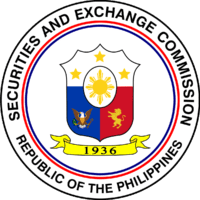Foreign exchange or ‘Forex’ trading carries serious risks, with online fraudsters exploiting the volatile market to get their hands on investors’ capital. At Hash, we perform rigorous Forex scam investigations to help victims uncover the culprits behind the crime and recover their losses.
Harnessing a worldwide network of whistleblowers, expert witnesses and international partner agencies, Hash is a global leader in Forex fraud investigations. Equipped with over 30 years of experience in evidence gathering, our licenced investigators unravel fraudulent Forex trading operations to reveal the criminals and money trails behind them.
This actionable intelligence and information can be used to help recoup your money and prosecute the scammers who pocketed it. Book a consultation with Hash to arrange an investigation today.
As featured on
Falling victim to a forex scam
Although forex trading is not always fraudulent, this highly-technical market is prolific with financial scams that target all levels of investor.
Forex fraudsters operate out of call centres in countries such as Cyprus, Israel, Ukraine, Armenia, Moldova, Georgia, Bulgaria, South Africa, Thailand, Philippines, Indonesia, Malaysia, Cambodia and Myanmar. These scammers lure investors in with the promise of high returns and specialist support, posing as industry experts despite having little to no experience in trading foreign currencies – nor any intention of doing so.
Instead of investing the capital they receive, these criminals funnel it through an intricate money trail for their own use. By the time you realise that the trades are fraudulent, your funds have vanished.
If this sounds all too familiar, please contact our forex scam investigators as soon as possible to discover how we can assist your case.
Forex scam investigators with a proven track record
World-class fraud investigations
Our cyber investigators, analysts and researchers have been gathering evidence to hunt down fraudsters across the globe for over 30 years. With our exceptional investigative skills on your side, you can maximise the likelihood of recovering your losses.
Connections in every country
Hash has extensive experience working closely with state, federal and international law enforcement agencies. Our investigators can also join forces with local and foreign correspondent lawyers to discover money trails and hidden assets on any continent.
Powerful techniques
With direct access to local databases, expert witnesses in cyber fraud, cybercrime and cyber forensics, and a network of confidential informants, IFW utilises a range of techniques to complete rigorous investigations into even the most complex Forex scams operating from foreign countries.
Actionable evidence
No matter where your investigation takes place, Hash will prepare a solid brief of evidence for use in criminal proceedings in the appropriate jurisdiction. Armed with proof of fraud, and the identities of those involved, you will be able to file complaints to prosecute the offender and take steps to recoup your money.
Renowned results
Hash investigators have been instrumental in helping international law enforcement agencies crack down on organised cybercrime groups, providing pivotal evidence that has resulted in major police raids, arrests and prosecutions around the world.
Total discretion
Our dedicated fraud investigators conduct every investigation with unfaltering professionalism, sensitivity and discretion. To ensure client privacy is protected, we encrypt all personal data and will only ever disclose case information with consent.
Falling victim to a Forex scam
Although Forex trading systems are not always fraudulent, this highly-technical market is prolific with financial scams that target all levels of investors.
Forex fraudsters operate out of call centres in countries such as Cyprus, Israel, Ukraine, Armenia, Moldova, Georgia, Bulgaria, South Africa, Thailand, Philippines, Indonesia, Malaysia, Cambodia and Myanmar. These scammers lure investors in with the promise of high returns and specialist support, posing as industry experts despite having little to no experience in trading foreign currencies – nor any intention of doing so.
Instead of investing the capital they receive, these criminals funnel it through an intricate money trail for their own use. By the time you realise that the trades are fraudulent, your funds have vanished.
If this sounds all too familiar, please contact our Forex scam investigators as soon as possible to discover how we can assist your case.
Common types of Forex scams
Signal seller scams
Signal sellers are managed account companies, retail firms, asset managers or individual traders who provide a software system that flags advisable times to purchase or sell a currency pair. These suggestions are based on professional insights, purporting to help inexperienced traders earn money in return for a recurring fee.
While some legitimate signal sellers perform trade functions as promoted, it pays to do your due diligence. Otherwise, Forex scammers could snatch your money and disappear.
Signs of a signal seller Forex scam
- Subscription charges: Exercise caution if you are asked to pay daily, weekly or monthly fees to access this ‘privilege’. You should never share your credit or banking details without confirming the trader’s regulatory status.
- Broker-specific signals: Step away from signal sellers that offer trading signals tied to a certain broker. The seller may make biased recommendations to earn a commission fee, regardless of your best interests.
- Unsubstantiated results: False testimonials from seemingly-sound sources may attempt to persuade action, despite the signals failing to forecast profitable trades. Be wary if there is no verified track record to back reviews.
- Inflated accuracy: such claims are an instant warning, as no trader or technology can achieve this degree of precision. Always compare past signals with historical market data.
Robot scams
A Forex robot is a software program that utilises algorithms to automatically buy and sell currency. The parameters and optimisation codes employed by genuine Forex robots are assessed by independent bodies to ensure their validity. Legitimate brokers often offer these Forex robots as value adds.
However, some scammers sell fraudulent robots that trade at random. Although claiming to be able to make you money around the clock, these untested systems can instead cause you to lose your hard-earned savings.
Signs of a robot scam
- Exceptionally-high returns: Forex robots can advertise systems that achieve a percentage growth rate in the thousands after only a couple of years. Be sceptical. This figure could only reflect closed trades. If the system has open trades and the stop losses are triggered, your profits could be erased.
- Set scalping tactics: Some Forex robots utilise a scalping system, trading for minuscule profits. Technically, this can create a seemingly-strong win rate that inflates results – and leaves your profits susceptible to slight variations in market conditions, should things take a turn.
Forex managed account and broker scams
Some Forex scammers target beginner investors who are looking for an expert to handle trades on their behalf. Posing as an investment firm that provides managed Forex accounts, the fraudster often demands a fee or commission charge in exchange for their professional services. But instead of maximising your returns, they report false profits and drain your account.
A scammer may also pretend to be a registered Forex broker, swindling investors with fake funds. They may assume the identity and registration number of a legitimate Forex broker, even creating a practically-identical website to lure you in and convince you to hand over your money.
Signs of a managed account Forex scam
- No proof of fund manager qualifications: while fraudulent fund managers claim to be certified to serve this role, they may struggle to provide legitimate evidence of this experience.
- Incredible returns: Forex scammers tend to purport inflated returns, displaying figures that outshine market norms to reel in unsuspecting investors.
- Overly-high fees: charges are standard but make sure to read the fine print carefully before committing to a managed account. Excessive costs with penalties for early exits may be a warning sign of a Forex scam.
Forex pyramid and Ponzi schemes
Forex pyramid schemes purport to be investment groups, reeling in victims by offering access to exclusive trading advice in return for a membership fee. Existing members are promised a commission to recruit more members, in turn moving up the ‘pyramid’ of promised profits.
Similarly, a Forex scam can take the form of a Ponzi scheme, advertising Forex funds that ensure a strong return in a short timeframe. Typically, the scammers only request a minor upfront investment and may even pay the first few investors their promised returns to make the scheme appear effective. These investors are then convinced to persuade their friends and family to join.
In both pyramid and Ponzi schemes, distributed earnings derive from membership fees as opposed to Forex trading wins. In both cases, the investment does not actually exist. When recruits start to dwindle, the original orchestrators close the scheme and pocket your money.
Questions to ask to steer clear of a Forex scam
A handful of strategic questions can help you to confirm whether you are liaising with a credible professional or a Forex scammer. To help you avoid a Forex scam, ask the following questions before you sign up for an account.
-
Is the Forex broker or platform a registered company?
-
Is the Forex broker or platform regulated? If yes, how legitimate is the regulatory body?
-
Is the Forex broker or platform promoting profits or rewards, like a cash bonus, for opening an account?
-
Is the Forex broker or platform promising automatic trades or signals to ensure profits?
-
Does the website feature any credible information about the organisation, such as its performance history, financials, or physical address?
-
Can you verify the authenticity of awards, promotional partnerships and other trust symbols?
-
What are the exit terms in the contract?
-
How simple is it to contact customer support?
How to spot a forex scam
Guaranteed returns
Typically, the most prominent red flag of a Forex scam is the promise of unlimited profits with little or zero financial risk.
First off, 100% guarantees are simply not possible – and if there was some way to make them happen, traders would keep this winning formula to themselves.
Furthermore, successful Forex trading demands expertise and patience. It is not the avenue for quick and effortless returns. If you are being assured otherwise, walk away and do your own research.
A beginner trader should approach every opportunity with caution, analysing the data independently and testing their functions on a demo account before investing a cent. This will help you to avoid falling victim to a Forex scam.
The bottom line: If it sounds too good to be true, it usually is.
Lack of regulatory information
Forex scams are often orchestrated by unregulated brokers, who are not obliged to report to an authority. In other words, they can use deceptive tactics, such as blaming system glitches, to steal your money.
Alternatively, many Forex scam brokers are regulated by foreign governing bodies with minimal oversight. Consequently, it is critical that you only engage brokers with a robust reputation and first-rate regulation, such as by ASIC in Australia.
To check your Forex broker’s regulatory status, take a thorough look at the bottom of each page on their website. Genuine Forex brokers always demonstrate evidence of their legitimacy online, as they are legally required to present certain risk disclaimers and regulatory information within their website footer.
However, as some Forex scammers may include deceptive details to appear above board, it is strongly recommended that you confirm their registration with the relevant authority by requesting a list of regulated companies.
Emails pestering you for personal details
Often, a Forex scam can involve email spam that requests personal information, including your full name, phone number, home address, birthday and more.
Never share these details with anyone who you do not know and trust completely – no matter how high the returns they are promising. Be wary of brokers who fail to supply you with a written risk disclosure statement. And if they do, always double check the fine print.
Signup bonuses
When an unregulated broker advertises an unusually large cash bonus with vague details and little context, you are likely looking at a Forex scam.
Offering a signup bonus with a lack of practical information is a typical scam strategy. This tactic persuades website users into clicking on a link that brings them straight to the account signup page – where they will steal your funds.
No background information
Never give your hard-earning savings to someone who cannot provide you with genuine background information, such as their professional credentials, physical location, team members, client reviews and other key elements.
Orchestrators of a Forex scam do not want to be associated with any names, places, or contact details in case the authorities try to crack down on their operations.
Frequently asked questions
Top-
If you have comes across a Forex scam, please report it to the Police or via your national fraud reporting portal (for example: Australia – www.cyber.gov.au, USA – www.ic3.gov, UK – www.actionfraud.police.uk, Canada – www.antifraudcentre.ca).
-
If your money has ended up in another country, it may be recovered through the relevant jurisdiction’s Court process or private settlement negotiation.
A negotiated outcome is particularly likely once Hash has gained strong legal leverage against the fraudsters.
-
Given the legal complexities of Forex fraud, a successful outcome is never guaranteed. However, the stronger the evidence against the offenders, the more likely a legal case can be filed – and Court proceedings can often result in a recovery.
At Hash, our investigators will conduct a preliminary assessment of your case to identify any commercial or financial risks of the investigation and advise on the realistic chances of recovery. Equipped with these expert insights, you will be able to make an informed decision on whether or not you wish to proceed with our services.
-
The duration of a Forex scam investigation depends on its complexity and whether legal proceedings are involved. Typically, Hash can track down the fraudsters and their locations within one to three months.
After this milestone, a recovery strategy must be implemented in light of the investigation’s discoveries. This process usually includes preparing an initial demand letter, which, if ignored, is followed by legal action and/or the lodging of a criminal complaint and close liaison with law enforcement agencies.
In this case, Hash investigators will assist law enforcement officials with the filing of search warrants and/or criminal charges against the offender, who will most likely end up arrested and prosecuted.
-
The fundamental features of Forex fraud are deception and dishonesty. Therefore, as the victim, you must prove that your decision to send money was based on the fraudster’s false statements about the purported investment.
From there, the expert investigators at Hash will take care of the rest, gathering clear evidence of fraud to meet the criminal burden of proof required in Courts around the world.
-
The cost of investigating a Forex scam varies according to the complexity of the case, the amount of money concerned, and the country from which the offenders operate.
In general, the larger the losses, the more challenging and expensive the investigation – particularly if your funds have been transferred across various financial institutions or money-remitting platforms.
Hash’s skilled investigators will prepare a personalised proposal for your unique case, budgeting to maximise the likelihood of a successful outcome.
-
Due to the amount of time, resources and expenses involved in tracking down criminals behind complex cross-border investment frauds, Hash does not take on any unfunded investigations.













 Philippines National Police
Philippines National Police  Californian Association of Licensed Investigators
Californian Association of Licensed Investigators  NSW Police Force
NSW Police Force  Philippine Securities and Exchange Commission
Philippine Securities and Exchange Commission 

